TYC Materials Modelling Course

All sessions are on Wednesdays 1-3pm in UCL Physics E7 (Ground floor) unless otherwise stated.
Course Content

High throughput computation and structure prediction – Chris Pickard, University of Cambridge
Physics E3/7
Week 22 – Wednesday 25 March 2026

Accurate ab initio simulations of condensed phases and surfaces – Angelos Michaelides, University of Cambridge
Physics E3/7
Week 21 – Wednesday 18 March 2026

Quantum Monte Carlo – Yasmine Al-Hamdani (UCL & Naples)
Physics E3/7
Week 20 – Wednesday 11 March 2026

Electronic excitations, GW, Bethe-Salpeter equation, GF – Johannes Lischner – Imperial College London
Physics E3/7
Weeks 18 & 19 – Wednesday 25 February & 4 March 2026
An introduction to the GW method
Introduction to GW, the concept of a Green’s Function and Feynman diagrams

Introduction to vibrations of molecules and crystals – Lev Kantorovich, King’s College London
Physics E3/7
Weeks 16 & 17 – Wednesday 11 & 18 February 2026
Separation of electrons & nuclei lecture notes
Vibrational properties of materials – theory and applications 2 lecture notes

Quantum statistical mechanics and applications – Venkat Kapil, UCL
Will introduce the path-integral formulation of quantum statistical mechanics and how it can be implemented using molecular dynamics to estimate equilibrium properties; will discuss how to model quantum dynamics and discuss case studies where inclusion of quantum statistical mechanics is needed to describe material properties.
Physics E3/7
Weeks 15 – Wednesday 4 February 2026

Fitting forcefields using Machine Learning and other techniques – Venkat Kapil, UCL
Will consider different ways to represent the potential energy landscape as a sum of local contributions of atomic potential energies, and compare state-of-the-art machine-learning architectures and will address the challenge of dataset generation, model validation and look at some applications.
Physics E3/7
Week 14 – Wednesday 28 January 2026

Using graph neural networks – Keith Butler (UCL)
Physics E3/7
Week 13 – Wednesday 21 January 2026

Data-driven modelling and artificial intelligence – Aron Walsh (Imperial College London
Physics E3/7
Will introduce the different ways in which materials data and statistical models can be used to explore structure-property relationships and support materials design.
Week 12 – Wednesday 14 January 2026

Umbrella Sampling, Markov State Models (with tutorial), Adaptive biasing, Metadynamics – Edina Rosta and Matteo Salvalaglio (UCL)
Room E3/7 Physics
Weeks 9, 10 & 11 – Wednesday 26 November, 3 & 10 December 2025
Umbrella Sampling lecture notes
Free Energy lecture notes
Why nature chose phosphates
Statistically-Optimal Markov Chain Models in Biomolecular Simulations

Molecular Dynamics: MD, ab initio MD, time stepping algorithms, classical MD, BO MD, thermostats – Jochen Blumberger (UCL)
Room E3/7 Physics
Weeks 7 & 8, Wednesday 12 & 19 November 2025
Born-Oppenheimer Approximation
Classical Approximation of Nuclear Motion
Molecular Dynamics and Time Stepping Algorithms
Born Oppenheimer Approximation Lecture Slides
Classical Approximation of Nuclear Motion Lecture Slides
Molecular Dynamics Simulation
Born Oppenheimer Molecular Dynamics
Time averages ensembles thermostat
Born Oppenheimer Molecular Dynamics lecture slides
Time averages ensembles thermostat lecture slides

Solid state and molecular quantum chemistry and beyond:
- Limitations of DFT/mean-field methods, electron correlation, LDA+U, post-mean-field methods, embedding methods
- Hartree-Fock, Hybrid DFT, Local basis sets, Limitations and strengths of different basis representations
Furio Cora (UCL) and George Booth (King’s College London)
Room E3/7 Physics
Week 6 – Wednesday 5 November 2025
Perspectives on Electronic Structure lecture notes
(Local) Basis sets in computational chemistry lecture notes

DFT practicalities and geometry optimisation methods – Alex Ganose (Imperial College London)
Room E3/7 Physics
Week 5 – Wednesday 29 October 2025

Periodic boundary conditions, pseudopotentials, electrostatics in DFT, Total energy calculations, Defect formation energies, Charge corrections – Kirk Bevan, McGill University (Canada)
Room E3/7 Physics
Week 3 – Wednesday 15 October 2025
Week 4 – Wednesday 22 October 2025

Basic DFT: Born-Oppenheimer approximation and Hartree Fock approximation, Thomas-Fermi, Hohenberg-Kohn, LDA, GGA – David Bowler, UCL
Physics E3/7, Grd. Flr.
Week 1 & 2 Wednesday 1 & 8 October 2025
David Bowler lecture notes 1
David Bowler lecture notes 2
Alex Shluger (recording)
